Speaker: Vitalik; Compiled by: Deng Tong, Golden Finance
On September 18, 2024, Ethereum co-founder Vitalik gave a speech at the Token 2049 Conference entitled "What Excites Me in the Next Ten Years". Golden Finance compiled Vitalik's speech as follows for readers.
As people often say, we are still in the early stages of blockchain development. At present, we are still building infrastructure, which is a major attempt.
We are in the early stages of encryption technology being truly usable
You have to ask the question: Are we really in the early stages? I don't think we are in the early stages of the cryptocurrency industry, but we are in the early stages of cryptocurrency being truly usable.
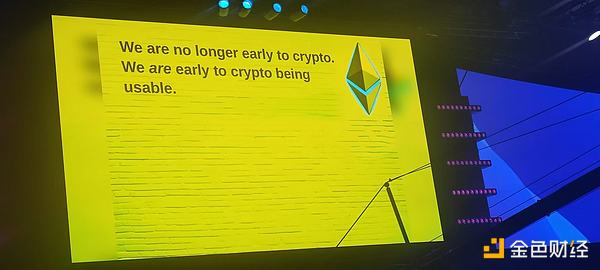
Remember back in 2013 when we were all excited about Bitcoin, the next big revolution in payments. There was a really amazing, really serious effort to get regular merchants around the world to start accepting Bitcoin. Who remembers when we were in Berlin, it was a restaurant called felonious Monk Fish. It was actually the first Big Point restaurant I wanted. Back in 2013, you could be a proud Big Point restaurant and also a proud Asian LGBT-friendly restaurant. So back then, people were very excited about it. So what happened? One way to answer this question is that we can look a little further back.
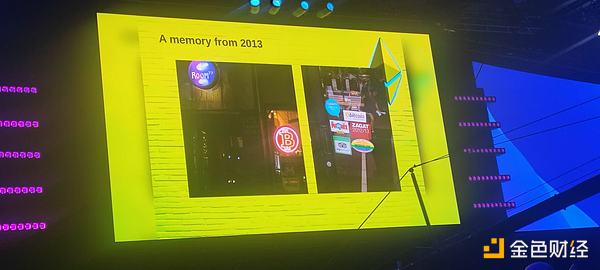
In 2021, I visited Argentina, which was my first time there. The first thing I noticed was that the Argentinians were not only very excited about cryptocurrency, but they were also actively using it on a large scale.
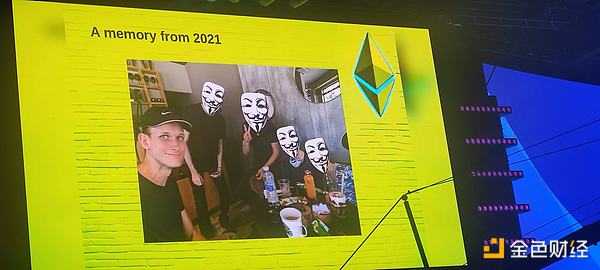
I was walking around on Christmas Day and the first coffee shop I noticed was open. I walked in, bought coffee and had dessert with my friends.
Now, they use currency, but they don't use decentralized technology. It turns out that locals in Argentina are using traditional financial system transfers. Why? Because traditional financial system transfers are instant and free. I think this ultimately killed the initial wave of exploration to get everyone to adopt Bitcoin as a currency.
Ethereum absolutely supports privacy-preserving transactions. So it's undeniable that Gas has risen. Basically, a lot of things ended up failing because something new happened in 2024.
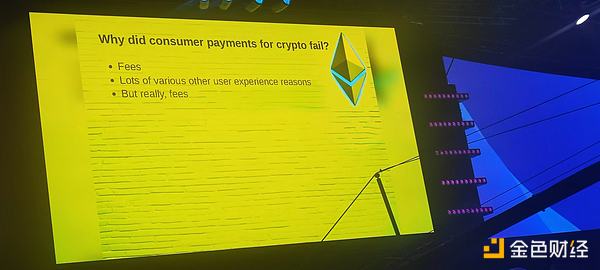
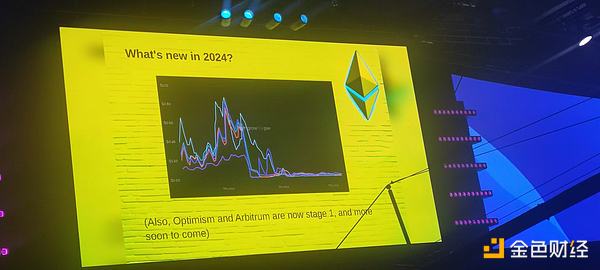
Optimism and Arbitrum are two major security milestones and are still in the first stage. Rollups are rapidly becoming more secure, and Rollups are actually finally affordable. In addition, another issue is the confirmation time of transactions.
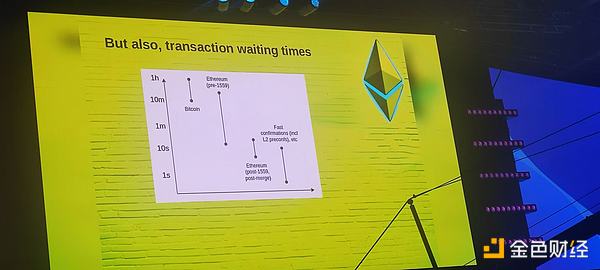
Now, this is after EIP 1559 was on-chain, but this particular wallet hasn't actually upgraded to EIP 1559 yet. A large block appears every 10 minutes. So we have to wait 10 minutes, maybe even an hour, for a transaction to be confirmed on Ethereum. In theory, the block time is 13 seconds, but because of the very low efficiency in the past, sometimes you have to wait a completely random amount of time. If you're unlucky, 5 minutes, or even longer, for a transaction to be made.
On the left, you can see an EtherTweet from 2015. It looks like a hockey fund demo. Now on the right, it's Firefly (Farcaster + Twitter + Lens client). If you look at the quality of the user interface like this - it looks like a Web 2 quality. It's a decentralized application. But at the same time, we've seen more progress this year. We're seeing more and more people using secure technology, we have better privacy protocols, I can prove that you have a pass with zero knowledge, and then you can vote here.
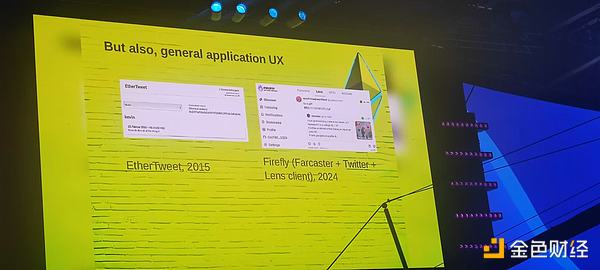
Crypto technology does not equal efficiency
We think one mistake people sometimes make is to think of cryptocurrency as efficiency technology.
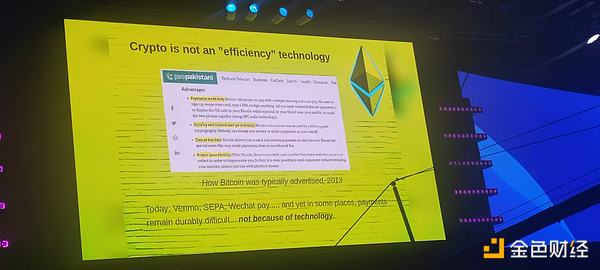
A lot of people talked about this as early as 10 years ago. So this is a random page from 2013, and it just lists the benefits of accepting cryptocurrencies. Payments make it easy to be secure and control your money, and zero or more fees or low fees protect your identity. I think two of the four are other features that are unique to cryptocurrencies. The other two, they were unique to cryptocurrencies at the time. Although we have WeChat Pay, payments on centralized systems are getting better and better. However, in some places, payments and financing are still difficult. Why are they still difficult? It's not because of a lack of access to technology. It's basically because of the limitations of global war.
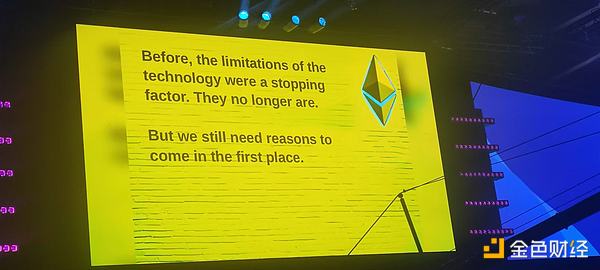
I think it's important to remember that the benefits that crypto has brought to the world have nothing to do with the same kind of technological improvements. Because going from a regular jet to a supersonic jet is a technological improvement. It's a different type of technology.
If you think about how blockchain is different from previous technologies, some of the technologies that they're based on are sensational things, like wars, like scrambles. I think you'll realize that blockchains are all about creating structures that last, and those structures are very powerful.
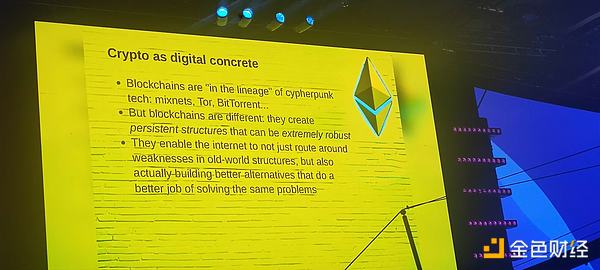
A castle can be a museum that preserves a thousand years of European history. A digital castle can also be all of these things, and digital and all types of digital castles are things we can build on top of this area.
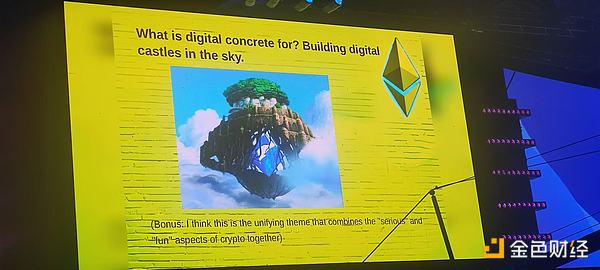
Ethereum's Vision: Mainstream Adoption + Open Source + Decentralization
What should our team goal be? We need to meet the needs of mainstream adoption, and at the same time we need to adhere to open source and decentralized values. What does this mean?
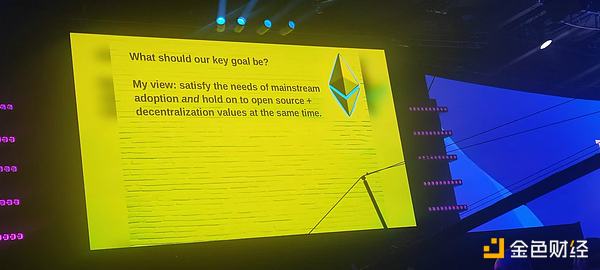
Next, let's use the example of wallet security. Historically, there have been basically two ways to keep your money. One of the ways is that you like crazy self-sovereignty, extremism. You write down your mnemonic phrase and do everything offline. You carve your phrase into a piece of titanium, put the titanium into a lockbox made of it, and then you work, but put that box 10 meters underground, and then your crypto is safe. The other way is, take your crypto and go and give it to some trusted people.
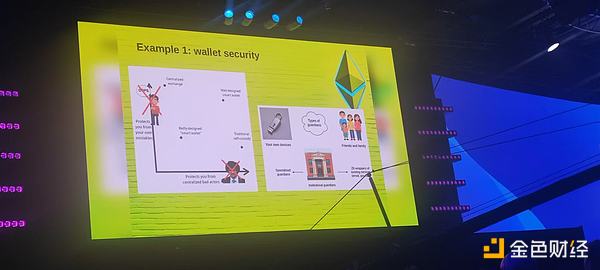
If you want to protect yourself from centralized actors, then you can do traditional self-custody. If you really want to do that, you can put it in titanium and bury it 10 meters underground. So what if you want to protect yourself from centralized exchanges? What if you want to have both? This requires a smart wallet with multi-protection. Multi-protection, as we do, means that you have multiple keys. For example, you might have six keys, four of which you need to send a transaction. You can even make a rule that for all transactions, when we need a key, these keys can be any combination of keys that control existing services for friends and family.
You can actually get the benefits of institutional trust as well, for example in decentralized social media, you can set your recovery address and control your account as much as possible as your multisig. I personally trust my multisig far more than any of my centralized accounts.
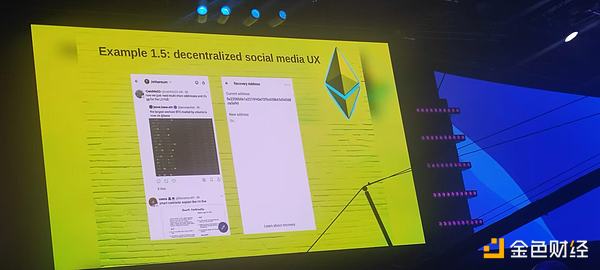
Example two payments. This is a demo. This is a completely theorem-based wallet, but it has the same quality of user experience. Example three, the privacy rules are used as a mechanism where users can prove that they left. Their withdrawals came from some deposits and guarantee that their deposits did not come from bad people.
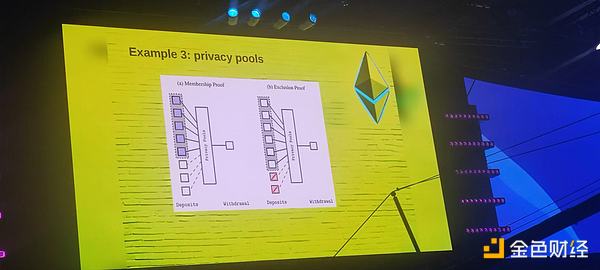
So this is a way that allows you to provide a very high degree of privacy for the average user and meet a lot of important compliance needs. But there are actually no backdoors, for example, for zk social media, this is a zoo poll, this is a zoo pass. So we can prove that you are human, prove that you are part of the community, solve the first input proof problem to solve the reputation problem, while still protecting your privacy. You can have privacy, you can have trust at the same time. Example five, if you are Employer No. 1, many of the technological improvements that are happening make Leader No. 1 better in terms of reducing finality, increasing capacity in time, while being more decentralized and easier to verify. These are all ecosystem theories and the direction I think cryptocurrency in general will develop in the next 10 years.
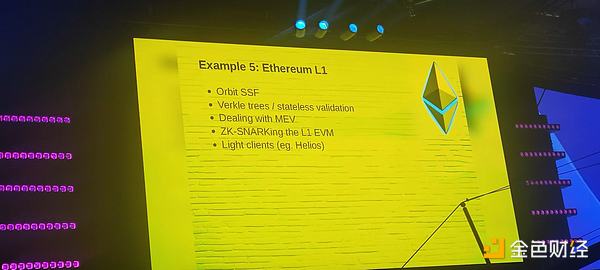
We basically have two wrong paths: sacrificing practicality in exchange for decentralization, and forever becoming an ecosystem that only attracts itself. But we don’t have to be trapped in these two choices. We can have both decentralization and practicality. Thank you.
 JinseFinance
JinseFinance
 JinseFinance
JinseFinance JinseFinance
JinseFinance JinseFinance
JinseFinance JinseFinance
JinseFinance JinseFinance
JinseFinance Brian
Brian Olive
Olive Clement
Clement Bitcoinist
Bitcoinist Coinlive
Coinlive